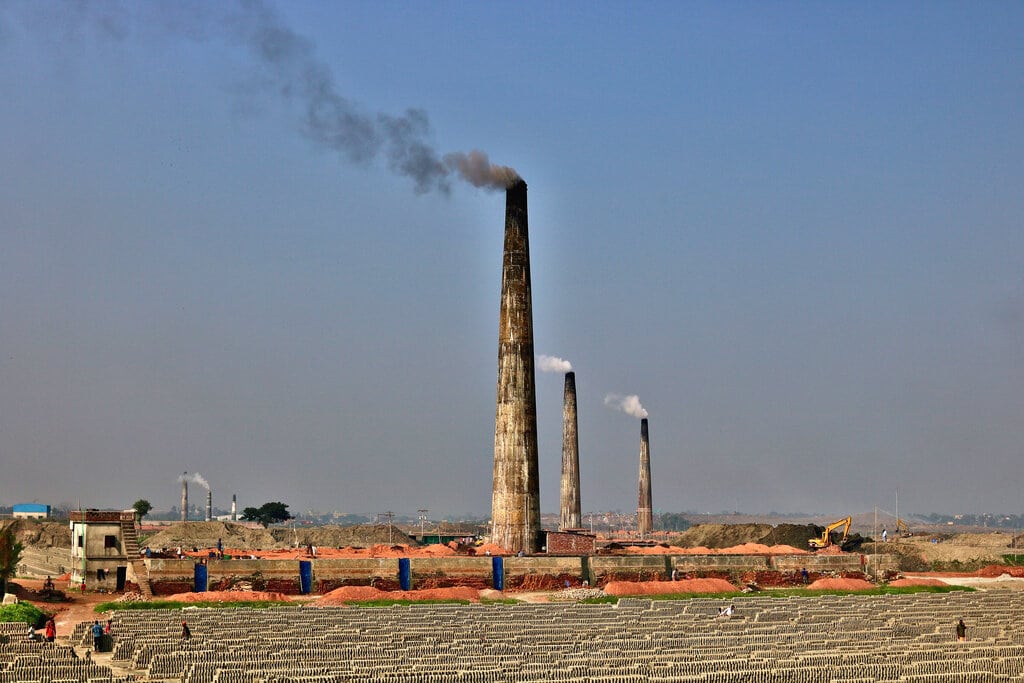The unprecedented CO2 levels are a clear indicator that global greenhouse gas emissions from industries, energy generation, and transportation show no signs of abating.
—
The monthly average of carbon dioxide in the atmosphere has reached the highest levels on record this past April, reaching up to 420 parts per million (ppm) for the first time since observations started, according to new data released by the National Oceanic and Atmospheric Administration (NOAA).
The numbers from Hawaii’s Mauna Loa Observatory, which is home to the longest continuous record of atmospheric carbon dioxide in the world, showed last month’s CO2 levels have surpassed the highest record of 419.13 ppm from May, 2021.
Twenty years ago, the highest recorded level was at 375.93 ppm and in 1958 when scientists first started collecting CO2 data at Mauna Loa, the maximum level was just at 317.51 ppm.
CO2 levels tend to peak during late spring around May ahead of the Northern Hemisphere summer season where increased vegetation will help soak up carbon dioxide out of the atmosphere and bring levels down again. But as greenhouse gas emissions from agricultural industry, fossil-fuel electricity generation, and transportation continue to rise, on top of other damaging activities like deforestation, more carbon dioxide gets trapped in the atmosphere, rapidly warming the planet and exacerbating climate change.
Climate scientists including James Hansen, who famously alerted the US Congress to the perils of the climate crisis back in 1988, have previously called to reduce atmospheric CO2 below 350 ppm. Yet ongoing trends have shown the world is not slowing down carbon-intensive activities. In fact, CO2 is currently increasing about 100 times faster than other periods in geological history that have seen more natural increases in carbon dioxide.
“The world effectively has made no serious progress compared to what is required,” Pieter Tans, a senior scientist at NOAA who monitors greenhouse gases, said to Axios.”We really need to focus on decreasing emissions and we haven’t had much success globally because the rate of increase of CO2 remains as high as it has been in the last decade.”
The latest data comes days after a new report saying that the world has a fifty-fifty chance of crossing the 1.5C global warming threshold, after which climate scientists warn will lead to a climate catastrophe. This includes more extreme and frequent heat waves and subsequent wildfires, sea level rise, heavy precipitation events in some parts of the world while other parts will experience prolonged droughts.
Despite renewed commitment to the 1.5C goal and updated climate pledges made at the COP26 climate conference last conference, countries have yet to show results when it comes to cutting CO2 emissions. Amid global energy security concerns, some nations are even burning more coal to reduce dependence on Russian gas supplies due to the Russian-Ukraine war.
The latest report by the Intergovernmental Panel on Climate Change (IPCC) warned that greenhouse gas emissions must peak by 2025 for a chance to meet the 1.5C target.
EO’s Position: The report clearly shows that the world is rapidly losing sight of being able to stay under the 1.5C limit of global temperature rise. We need to phase out fossil fuels immediately, scale up renewable energy generation, and adopt carbon pricing to avoid the catastrophic impacts of climate change. With COP27 2022 coming up in November, governments (and industries) must take steps to update their Nationally Determined Contributions (NDC) to stall global warming.
Featured image by: Md Mudassir Hossain


















